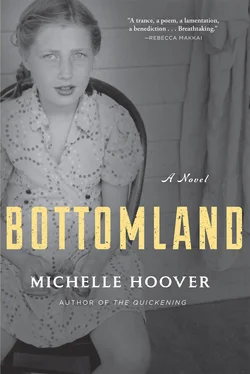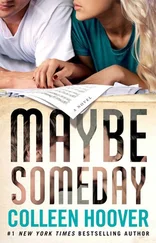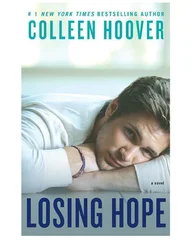“I don’t see the point in waiting for my card.”
I rested my cup beside my plate. “You will wait.”
“Why?”
“We need you for the fall harvest. With the new acres I need two boys, not one, and soon those acres will double. Wilson can hang his war for all I care. We still have a third of the riverway to finish. Have you forgotten?”
“What if they draft me before then?”
Across from me, Margrit gripped her fork. Her face was flushed, her gaze fallen to Ray’s throat.
“No,” I said. “I have the new reaper. And the winter wheat is ready for a pass.” I rose to my feet and gazed down at the table with its dishes and scraps. “Come now. If you don’t plan to eat anything, we can start.”
The boy raised his head to speak. He turned instead and rushed out. Margrit brought her napkin to her lips.
“He won’t go if I can keep him.” I touched her shoulder, but she flinched. Since months, the sure-bloodedness of my wife had grown thin. She stood to gather plates, though the plates seemed heavy for her.
At last she spoke. “We can’t keep him.”
Outside, both my sons were at work in the corral. They had the reaper brought out and two of the horses. They readied a third. “That old machine,” I said, “it was little more than a scythe on wheels. But this. ” I clapped the bullwheel. “This is mechanization. We need only two horses.”
“Two?” asked Lee.
“Buck and Telly, they will make it just fine.”
We led the horses to the northernmost field. The rest of our acres were corn and oats, yet the winter wheat was an earlier harvest by months. The following season, I planned not to plant a row of the crop, difficult as it was. Now I hoped it kept Ray from sitting at tables and making pronouncements. The boy trailed silently behind us. Yards from where we walked, the river ran with noise enough.
“Look at that,” said Lee. The water kept to its channel on our side, yet on the far bank it stole clots. Elliot was losing more soil than gaining.
“You boys make a start. You’ll be able to handle this alone. I’ll be seeing Elliot about the river. We will set him right.”
I had not since the fall seen Elliot. I had not gone outside our acres in the months following our trip to town the winter before. Our work in the spring and summer kept us home. Still I carried that tooth in my pocket, a reminder. In my heavy boots, I crossed the fields. The beginnings of June, yet the month had rushed at us with the heat of August. Since a week, the soil had been hot to the touch. It steamed underfoot even after the sun had gone. Now the wind swung eastward. The sky hung above us with spits of rain, steaming the ground further still.
A clank of metal from inside the Elliot barn. I opened the door. The barn was dark save for a lantern lit too close to the floor. Another fire flared from the back wall. When it flared again, I made out the shadow of the man in his mask. He cut a wide sheet of tin with his torch, awkward for him to hold both torch and tin at once. The threat of rain, it must have driven him in. I took another step. A growl stopped me short. Two of the Elliot pups itched in the corner of the closest stall, large as wolves. With their chins on their paws, they bared their teeth. At last Elliot turned off his torch.
“Hess?”
I stood with my hat in my hands and eyed the dogs. “Margrit sends her best.”
Elliot stepped from the dark. His eyes were red, the skin of his chest blotchy where the mask had failed to cover him. He sat on a bale of hay. “Hess.”
“I thought I might call over myself.”
Elliot worked his mouth. I found my own bale of hay. It was shorter than his and closer to the man than I might have wished.
“So you make yourself at home these days,” he said.
“Home? Nothing of the sort.”
Elliot checked the dogs with a glance. Outside, spots of rain stung the tin roof.
“I know what you want,” said Elliot.
“Is that right?”
His eyes widened.
“Margrit was worried. It seems our boys had a spat a few months ago at the old Aster place. Ray earned himself a black eye, though it healed well enough. I am afraid this is the earliest I have had a chance. ”
The man gazed at me. “Aster doesn’t live there anymore.”
“Yes, but the boys have taken it as some sort of den. Your Tom never told you?”
“Tom. What would he be telling me about?”
I cocked my head. “About the fight of course.”
“Who’s fighting?”
“It might have been Ray who started it. It might have been your own.”
“Tom signed up for the merchant marines. He left a month ago for training. It’ll be France next.”
I leaned back from the stink of his breath.
“What do you plan to do, Hess? Scout out my barn? Run your water through that?” His torch had dropped to the hay-covered floor. He tore off his gloves. Underneath, his fingers were the dark leather of summer, as were mine.
“I have been meaning to talk to you. We could help shore up your side as I did my own.”
“My southeast acres are mud.”
“They would not have been if you worked with us.”
His eyes flashed. I raised my palm.
“I know you are short on help, especially now with Tom gone.”
“You’ve got two,” he said.
I nodded.
“And not a one of them is going over there, is he?”
“Ray registered last week, just like the others. We are hoping he will hear nothing until after harvest. And Lee is too young.”
“That means no.”
“No. Not yet.”
“What I thought.” He lifted one leg after another from the bale, lowered the mask over his face. He fired the tank, his mask alight. His eyes behind it thought nothing of me and my two sons.
“Joseph!” A voice from outside. With his torch going, Elliot was deaf to it. I caught his arm. The voice called out a second time.
Elliot bounded after it and I followed. Mary stood on their front porch waving an envelope. On seeing me, she tightened her shawl and rushed over to meet us. “Julius!” she said. “We’ve got a letter from our Tom.” She seized my hand. The woman in the last month must have aged tenfold. Her hair had fallen loose, her eyes shadowed. She offered only a flicker of a smile. “Are your boys gone as well?”
“Not yet,” I said. “Lee is not of age.”
“Of age?” The woman released my hand. She eyed her husband and touched her fingers to her cheek. “Why, I don’t even know what that means.”
Elliot led her back to their porch. The letter she crushed in her grip. The rain swelled. She fell into his side as they hurried, covering the envelope with her shawl. I blinked against the rush. The rain soaked the roof of their house, the timbers dark. Elliot never looked back and Mary, she had not invited me in, no matter the weather. Now they shut the door between us.
I stumbled home. Far off, the reaper stood motionless in the field. No sign of Ray or Lee with it. The horses stirred, strapped to the machine. I hurried to unleash them. The younger and smaller of the two appeared skittish, the river at her side gaining. As I led the horses to the barn, the young one strayed, brushing the flank of the male as often as she could. In their stables, I settled them both.
Outside, I gazed at the house. No one was in the yard, not even at the windows. The rain had stopped, the clouds broken. A glare of sun struck the glass. Smoke rose from the back, though it was far too early for supper. I quickened my steps. In the kitchen, a confusion of voices. I tore open the door. Inside, my children crowded the table. Margrit hurried to the stove where a large pot of water boiled, her apron thick with flour and more.
“Father!”
Margrit looked up. “Oh God, Julius.”
Читать дальше












